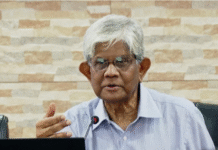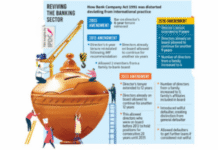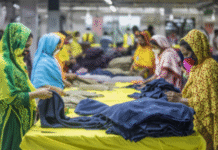
The voice of the marginalised people in the country is crucial when it comes to implementing reforms, Head of the White Paper Committee Debapriya Bhattacharya said today (17 April).
“We have engaged in an Anti-discrimination Student Movement, but we don’t talk about all kinds of discrimination. We’re currently on a journey to discover our national identity, yet we fail to include all ethnic and indigenous groups in the conversation,” he said during the closing and prize giving ceremony of the 6th Bangladesh Economics Summit.
Debapriya, also a Distinguished Fellow of CPD, said discrimination among religious communities is also rarely addressed.
“The voices of those who are left behind are the most important for implementing reforms. They need to stand up and raise their own voices. Standing beside these people is the greatest reform,” he said.
In order to understand Bangladesh’s transformation, Debapriya said the people must first understand why the 2024 uprising occurred.
Noting discrepancies in unemployment data provided by the ILO and BBS, Debapriya said most of those unemployed up until 2018 or 2020 had completed intermediate-level education, but now, more of the unemployed are educated individuals.
Furthermore, about two-thirds of the unemployed are women, he said, adding, “These realities must be understood to grasp the reasons behind the regime change in August [2024].”
He said, “Over the past 15 years, there has been low investment — especially in the private sector. As a result, job creation has been minimal. And when the education system does not ensure quality, even the few available jobs are not accessible to the youth.”
Consequently, foreigners are filling those positions, he said, adding, “When you ask investors, they often say they can’t find qualified candidates. As a result, the only option left is government jobs, which often require lobbying and connections. These issues have triggered the [July 2024] movement.”
“We have prioritised reforms based on necessity, and quality education is at the top of that list.”
“The interim government is operating with the previous government’s budget. While they have scrapped the previous five-year plan, they haven’t introduced any medium-term plan. As a result, investors lack confidence in making new investments.”
A kleptocracy has emerged involving businessmen, bureaucrats, and politicians, Debapriya also said.
“This is one of the biggest obstacles to reform. When we talk about reforms, how can we implement them while maintaining this kleptocracy? To make the reform agenda sustainable, there needs to be a constituency that will continue it.”

 Keep updated, follow The Business Standard’s Google news channel
Keep updated, follow The Business Standard’s Google news channel







